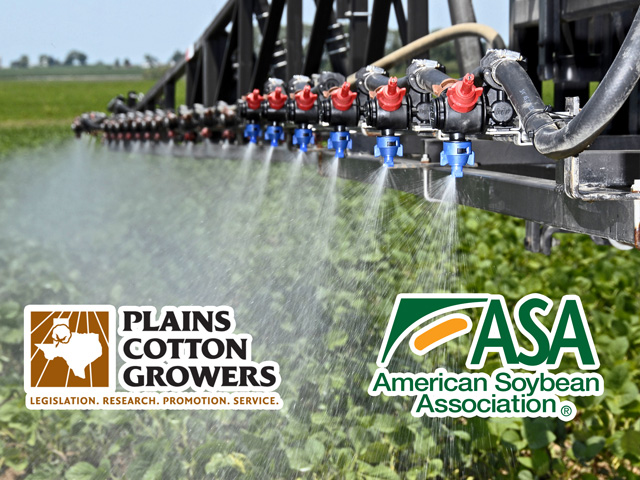Dicamba Labels Challenged
Two Commodity Groups Sue EPA, Demand Fewer Dicamba Label Restrictions
ROCKVILLE, Md. (DTN) -- EPA's decision to issue 2020 labels for three dicamba herbicides was considered a win for dicamba-tolerant crop growers and their industries by many -- but not everyone is totally satisfied.
Two commodity groups are suing EPA over these newly issued labels, arguing that they are too restrictive and will hamper cotton and soybean growers' ability to control herbicide-resistant weeds in their fields.
The lawsuit, brought to the U.S. District Court for the District of Columbia by the American Soybean Association and the Plains Cotton Growers, centers around a handful of new restrictions added by EPA to the labels of XtendiMax, Engenia and Tavium herbicides. The new labels include national cutoff dates for use -- June 30 for soybeans and July 30 for cotton -- as well as larger buffers to protect neighboring areas and endangered species.
In the lawsuit, the two commodity groups framed dicamba use as some growers' remaining defense against resistant weeds. They state that cotton and soybean growers reaped "massive benefits" immediately after the initial November 2016 dicamba registrations, which didn't include those new restrictions. Without full access to dicamba, the groups concluded, "Many farms would be largely defenseless in their fight against weeds."
P[L1] D[0x0] M[300x250] OOP[F] ADUNIT[] T[]
"[W]eather, pestilence, and other acts of God often push soybean growers, like cotton growers, into late season planting and replanting," the lawsuit stated. "The June 30 cutoff, then, likely leaves thousands of late season soybean growers largely defenseless against weeds. Compounding this, soybean growers annually battle late-emerging weeds, many of which are glyphosate-resistant ... Banning farmers from using dicamba against these doubly dangerous weeds essentially forces farmers to capitulate to these weeds."
The lawsuit specifically referenced the High Plains of Texas, where cotton planting dates can range widely. In past years, the state of Texas has used Section 24(c) special local needs labels to expand the time window for dicamba applications beyond the federal label for cotton growers.
That option -- expanded or added uses to the federal dicamba label via Section 24(c) -- remains in place for all state regulators in 2021, as well, although addition state dicamba restrictions are no longer permitted via Section 24(c) by EPA. (See more here: https://www.dtnpf.com/…)
The lawsuit also decried the newly expanded 240-foot and 310-foot downwind buffers required by EPA to protect neighboring areas and endangered species, respectively.
"These new buffers require Growers to leave cropland empty, driving down farm profitability, and financially harming Growers. In short, these buffers often functionally 'require growers to remove land from production,'" the lawsuit stated.
The commodity groups concluded their lawsuit by requesting the D.C. District Court remand the registrations "without vacatur," which means handing them back to the EPA to fix without taking the products off the market.
Read the lawsuit here: https://www.epa.gov/….
See more details on the EPA's new dicamba registration details here: https://www.dtnpf.com/….
Emily Unglesbee can be reached at Emily.unglesbee@dtn.com
Follow her on Twitter @Emily_Unglesbee
(c) Copyright 2020 DTN, LLC. All rights reserved.






